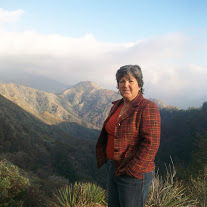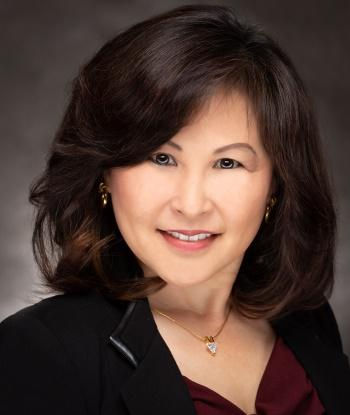State of the Watershed Spotlight | Towards Creating Healthier Communities
- Sep 19, 2018
- 5 min read

On September 27th, the Council for Watershed Health and LA Sanitation will host the 2018 State of the LA River Watershed Symposium, convening diverse stakeholders and expert panelists to identify actionable next steps for creating a healthy and resilient watershed. CWH will share a decade of LA River monitoring data and the comprehensive story of the river’s condition, which includes water quality, habitat assessment and aquatic health.
The second panel, "Towards Creating Healthier Communities" will explore the connections between ecological and community health and identify opportunities to improve community well-being in an heavily urbanized watershed. Read on to learn more about our distinguished panelists who will guide the discussion.

Moderator – Pauline Louie, Former Watershed Ambassador, Urban Waters Federal Partnership
Pauline Louie served as the Watershed Ambassador for the Los Angeles River from 2012-2016 as part of the Urban Waters Federal Partnership, a national program started in 2011 to coordinate and accelerate a variety of sustainability, economic and community development projects connecting communities with their urban waterways.
Ms. Louie has coordinated local and federal engagement for the U.S. Department of Housing & Urban Development for nearly 20 years on issues of sustainability, housing, economic development and community resiliency. Ms. Louie has managed projects involving Federal Empowerment Zones, Brownfields Redevelopment, Homelessness, farmworker housing, and grant-writing training. She is recognized as one of HUD’s key field staff in disaster recovery, having coordinated long term recovery planning, and served as the lead Housing official in FEMA long-term community recovery efforts following devastating events in Florida and California.
Before coming to HUD, Ms. Louie worked for Keyser Marston Associates, Inc., where she consulted on redevelopment and BRAC reuse issues to cities and developers in California and Nevada. Prior to that, she was a Contracts and Grants Administrator for the University of California during which she coordinated several job retraining grants and fundraising efforts.
Ms. Louie attended UCLA where she earned Bachelor's degrees in Political Science, and in Geography/ Environmental Studies. Also from UCLA, she completed her Master's degree in Urban Planning, with a focus on environmental and transportation policy and planning. She has also completed an executive program in Community Building at the John F. Kennedy School of Government at Harvard University.
Both Pauline and her husband Tim have fond memories of being raised near the Los Angeles River; they continue to make their home in the area.

Green Infrastructure as a Community Enhancement – Belinda Faustinos, Nature for All
Ms. Faustinos is the Executive Director of Nature for All, a coalition of 12 organizations that work to build a diverse base of support for ensuring that everyone in the Los Angeles area – no matter where they live – has equitable access to the wide range of benefits that nature can provide. Prior to this position she served as the Executive Officer of the Rivers and Mountains Conservancy (RMC) for 10 years and as Deputy Director of the Santa Monica Mountains Conservancy for over 17 years. She retired in May of 2011 after 40 years as a California State employee. In September of 2016 Assembly Speaker Rendon appointed her to the Tahoe Regional Planning Agency and she is an alternate California Coastal Commissioner appointed by Pro Tem Steinberg. Secretary of Interior Ken Salazar appointed her to the National Park System Advisory Board in 2010 and she was re-appointed in 2014 by Secretary Jewell. As a member of the NPS Advisory Board she Co-Chaired the American Latino Heritage Experts Panel and the Urban Committee. She also serves on two local advisory committees as Los Angeles County Board of Supervisor Solis’s appointee and on the board of the Council for Watershed Health and Robert Redford Conservancy.

How One Water Builds Resilience, Health, Jobs, and Equity – Traci Minamide, LASAN
Traci serves as Chief Operating Officer for the City of Los Angeles Sanitation and Environment Department, a department of over 3,000 employees with an annual revenue of $1 billion. She has been with the City for over 30 years serving in many capacities, including water planning, industrial pretreatment, environmental regulations, wastewater treatment, biosolids, and water reclamation. Traci holds a Bachelor of Science degree in Civil Engineering from California State Polytechnic University at Pomona, a Master of Science degree in Environmental Engineering from Loyola Marymount University, and certification in Executive Management for State and Local Government from Harvard University. She is also a licensed professional Civil Engineer in the State of California and a Board Certified Environmental Engineer through the American Academy of Environmental Engineers and Scientists. She serves as President for the California Association of Sanitation Agencies (CASA) and was a member of the State of California’s Advisory Panel on Direct Potable Reuse.

Importance of Parks and Recreational Spaces to Communities – Tamika Butler, LANLT
Tamika L. Butler serves as the Executive Director of the Los Angeles Neighborhood Land Trust, a non-profit organization that addresses social and racial equity, and wellness, by building parks and gardens in park-poor communities across Greater Los Angeles. Tamika has a diverse background in law, community organizing and nonprofit leadership. Recently she was the Executive Director of the Los Angeles County Bicycle Coalition. Prior to leading LACBC, Tamika was the Director of Social Change Strategies at Liberty Hill Foundation, and worked at Young Invincibles as the California Director. She transitioned to policy work after litigating for three years as an employment lawyer at Legal Aid at Work in San Francisco, CA (formerly Legal Aid Society-Employment Law Center). Tamika received her J.D. from Stanford Law School, and received her B.A. in Psychology and B.S. in Sociology in her hometown of Omaha, Nebraska. She currently lives in Leimert Park with her wife Kelly and their adorable Schnoodle Stewart Little.

Balancing Recreation, Restoration and Economic Revitalization – Joseph Edmiston, MRCA, FAICP, Hon. ASLA
Joseph Edmiston was appointed Executive Director of the Santa Monica Mountains Conservancy by Governor Jerry Brown in 1979. Under his leadership, the Conservancy has preserved over 72,000 acres of public parkland within and surrounding the Los Angeles Metropolitan region, in a zone extending from the edge of the Mojave Desert to the Pacific Ocean. From north to south, these areas drain into the Santa Clara River, Calleguas Creek, numerous smaller coastal watersheds in the Santa Monica Mountains, Malibu Creek, the Los Angeles River and its tributaries, and Rio Hondo. In addition to his position with the Conservancy, Joe serves as the Executive Officer of the Mountains Recreation and Conservation Authority–the field operations arm of the Conservancy–and five other joint powers agencies set up between the Conservancy and local governments within the region.
Joe has lectured extensively on environmental planning, park development, and urban land use. He and the Santa Monica Mountains Conservancy, have been the recipient of numerous national awards including the highest honor of the American Planning Association, the Daniel Burnham Award. He also received the American Society of Landscape Architects’ La Gasse Medal, awarded for notable contributions to the management of natural resources and public lands.

Public Health and the Built Environment – Rob Baird, Prevention Institute
Robert Baird works at the nexus of health equity and land use planning. At Prevention Institute, he helps facilitate the Healthy, Equitable, Active Land Use (HEALU) Network, as well as outreach and policy efforts related to water resilience and equitable infrastructure development. His experience includes work in community-based organizations and government-sector Planning and Public Health agencies, on topics that include active transportation, food access and nutrition, gentrification and displacement, urban design and zoning.
Join us on Thursday, September 27th for a bold discussion as we synthesize the past, present and future of the LA River at the Autry Museum of the American West. Through networking opportunities and engaging discussions, the Symposium will convene elected officials, non-profit organizations, community-based organizations, academics, agency scientists and land managers to identify actionable next steps and reinvigorate efforts toward creating a healthy and resilient watershed.
Fore more information, please visit: www.watershedhealth.org/2018-state-of-the-la-riv-watershed
Thank you to our sponsors for supporting our applied work to advance the health and sustainability of our regional watersheds!



#SOW2018 #HealthyRiver #ThrivingCommunities








































Comments